
Kalamata: The Jewel of the Peloponnese
Nestled at the heart of the Peloponnese, Kalamata is a city that seamlessly blends ancient history with modern charm. Famous for its olives, Kalamata offers a rich tapestry of cultural experiences, from its historic old town to the vibrant waterfront lined with cafes and restaurants. The city's backdrop of majestic mountains and azure waters makes it a picturesque destination for any traveler. History buffs will revel in the ancient ruins and the Byzantine churches that dot the landscape. The Archaeological Museum of Messenia and the Kalamata Castle provide a deep dive into the city's storied past. For those who prefer the arts, the city boasts a thriving cultural scene, with regular performances at the Kalamata Dance Festival and a variety of local art galleries. Kalamata's natural beauty is unparalleled. The pristine beaches of the Messinian Gulf are perfect for sunbathing, swimming, and a variety of water sports. The nearby Taygetos mountain range offers hiking trails that cater to both novice and experienced hikers, providing breathtaking views of the surrounding landscape. As the sun sets, the city comes alive with a buzzing nightlife, offering everything from traditional Greek taverns to chic bars and nightclubs. Whether you're a history enthusiast, an adventure seeker, or someone looking to relax by the sea, Kalamata has something for everyone.
Local tips in Kalamata
- Visit the local markets early in the morning to get the freshest produce and authentic local products.
- Take a guided tour of the Kalamata Castle to fully appreciate its historical significance and stunning views.
- Try the local olive oil, widely regarded as some of the best in the world. Many local shops offer tastings.
- Wear comfortable shoes as the old town's cobblestone streets can be uneven and require a bit of walking.
- Check the festival calendar before planning your trip; Kalamata hosts several cultural festivals that offer unique experiences.
Kalamata: The Jewel of the Peloponnese
Nestled at the heart of the Peloponnese, Kalamata is a city that seamlessly blends ancient history with modern charm. Famous for its olives, Kalamata offers a rich tapestry of cultural experiences, from its historic old town to the vibrant waterfront lined with cafes and restaurants. The city's backdrop of majestic mountains and azure waters makes it a picturesque destination for any traveler. History buffs will revel in the ancient ruins and the Byzantine churches that dot the landscape. The Archaeological Museum of Messenia and the Kalamata Castle provide a deep dive into the city's storied past. For those who prefer the arts, the city boasts a thriving cultural scene, with regular performances at the Kalamata Dance Festival and a variety of local art galleries. Kalamata's natural beauty is unparalleled. The pristine beaches of the Messinian Gulf are perfect for sunbathing, swimming, and a variety of water sports. The nearby Taygetos mountain range offers hiking trails that cater to both novice and experienced hikers, providing breathtaking views of the surrounding landscape. As the sun sets, the city comes alive with a buzzing nightlife, offering everything from traditional Greek taverns to chic bars and nightclubs. Whether you're a history enthusiast, an adventure seeker, or someone looking to relax by the sea, Kalamata has something for everyone.
When is the best time to go to Kalamata?
Iconic landmarks you can’t miss
Central Square of Kalamata
Experience the heart of Kalamata at Central Square: a vibrant hub of culture, cafes, and community, surrounded by neoclassical charm.
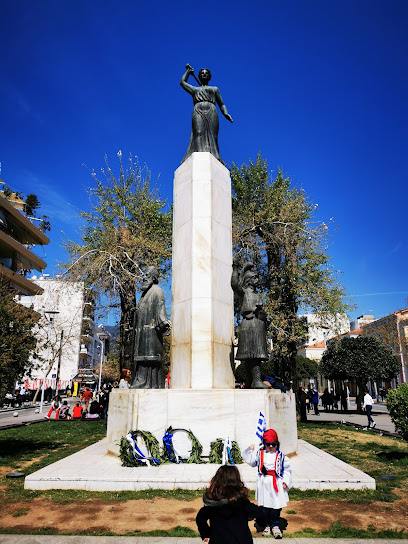
Municipal Railway Park of Kalamata
Explore a unique open-air railway museum in Kalamata, showcasing historic locomotives, railway cars, and the region's rich railway heritage.
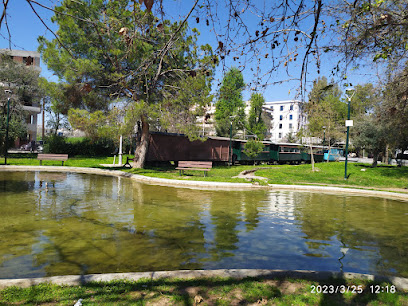
Kalamata Municipal Railway Park
Explore vintage trains and railway history at Kalamata's unique open-air museum and recreational park, a nostalgic experience for all ages.
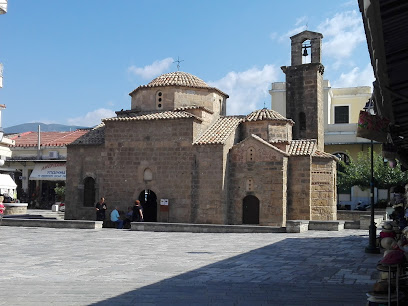
Kalamata's Castle
Explore Kalamata's medieval castle: a historic fortress offering panoramic views and a glimpse into the city's rich past.
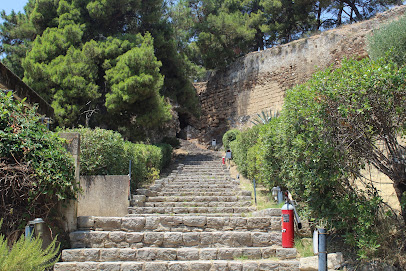
Archaeological Museum of Messinia
Discover Messenia's ancient past at the Archaeological Museum of Messinia, showcasing artifacts from the Bronze Age to the Byzantine era in Kalamata.
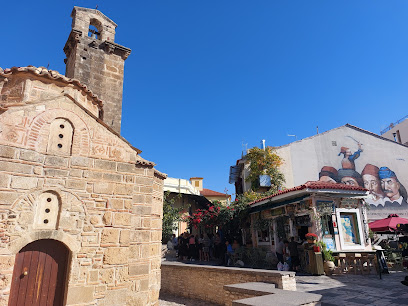
Kalamata Military Museum
Explore Greece's military history from the Revolution of 1821 to modern peacekeeping missions at the Kalamata Military Museum.
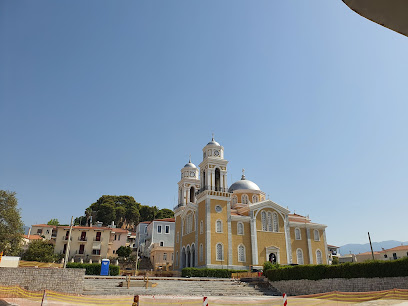
Μέγαρο Χορού Καλαμάτας , Kalamata International Dance Centre
Experience the art of movement at Kalamata's premier dance center, home to the renowned International Dance Festival and a vibrant cultural hub.
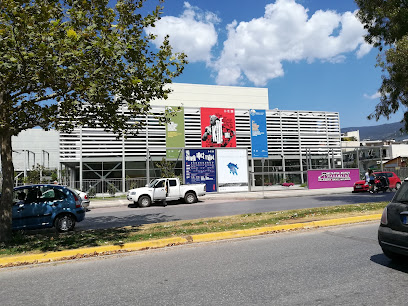
Historical and Folklore Museum of Kalamata
Explore Kalamata's heritage: Discover artifacts, traditions, and stories at the Historical and Folklore Museum.
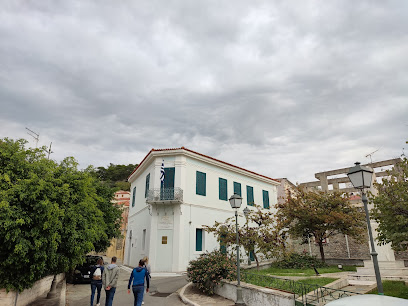
Verga wall
Explore the remnants of the Verga Wall, a symbol of Maniot resistance during the Greek War of Independence, near Kalamata.
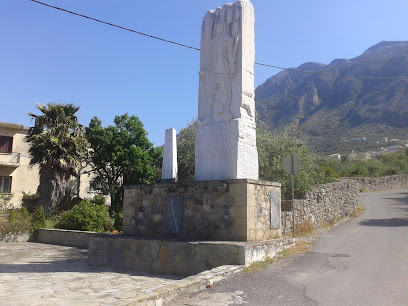
Kalamata Port
Explore the Messenian Gulf and Greek Islands from Kalamata Port, a historic maritime gateway with modern connections and seaside charm.
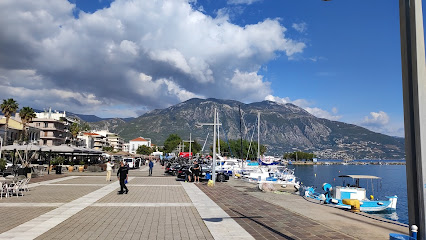
Great Escape Kalamata
Experience thrilling escape room adventures in Kalamata! Solve puzzles, work as a team, and create lasting memories in immersive themed rooms.
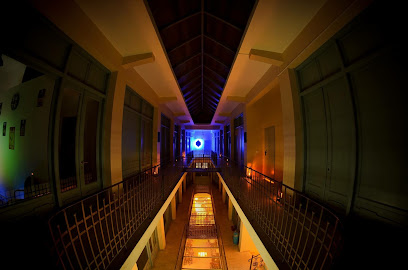
Memorial of the Battle of Kalamata April 28, 1941
Honoring the Allied forces who fought in the Battle of Kalamata during WWII, a testament to courage and sacrifice.
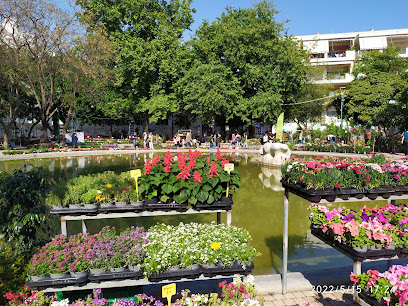
Πλατεία Αγίων Αποστόλων
Discover Kalamata's historic heart at Agioi Apostoloi Square, where the Greek Revolution was declared and Byzantine architecture captivates.
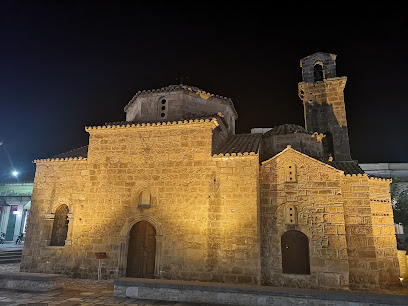
东正教堂 卡拉玛塔市
探索卡拉玛塔东正教堂,感受希腊的宗教文化和历史底蕴。
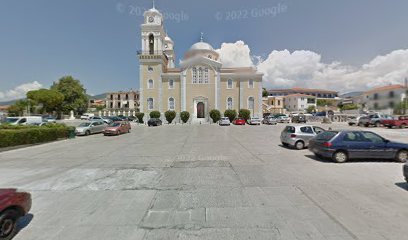
Pl. Agiou Georgiou
Experience the vibrant heart of Kalamata at Pl. Agiou Georgiou: a lively town square brimming with culture, cuisine, and captivating ambiance.
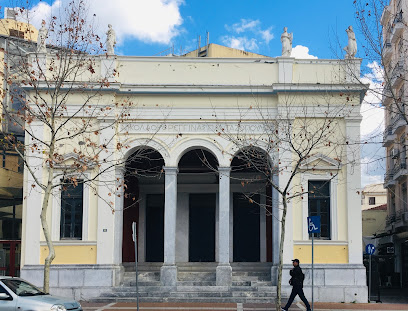
Unmissable attractions to see
Archaeological site of Mystra
Explore the captivating ruins of the Archaeological Site of Mystra, a UNESCO World Heritage site showcasing Byzantine history and breathtaking views.
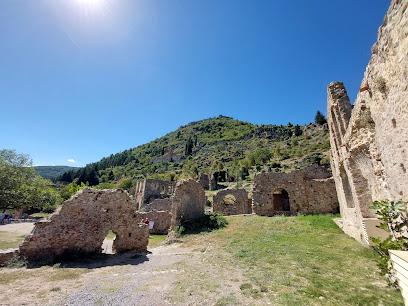
Voidokilia Beach
Discover the captivating beauty of Voidokilia Beach, a serene coastal paradise in Greece with stunning views and rich biodiversity, perfect for relaxation and adventure.
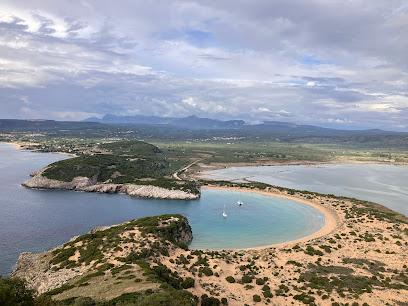
Church of Agia Theodora
Discover the serene beauty and spiritual heritage of the Church of Agia Theodora, a stunning Greek Orthodox sanctuary in Dasochori.
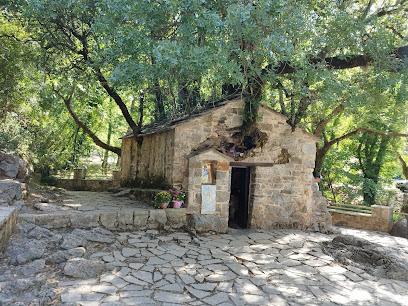
Polylimnio Waterfalls
Explore the captivating beauty of Polylimnio Waterfalls, a hidden natural wonder in Greece's Voufrada region, perfect for adventure and relaxation.
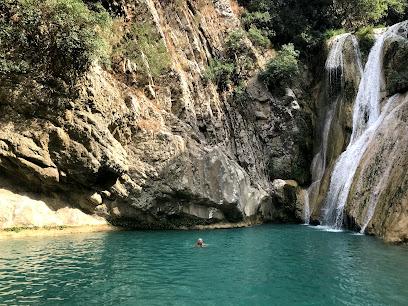
Archaeological Site of Ancient Messene
Explore the rich historical tapestry of Ancient Messene, a breathtaking archaeological site showcasing Greece's ancient architectural brilliance.
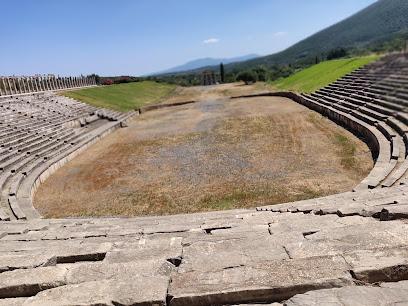
Neda Waterfalls
Explore the stunning Neda Waterfalls in Phigalia, Greece, a natural paradise for adventure seekers and nature lovers alike.
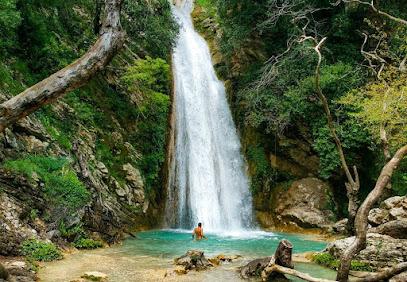
Foneas beach
Discover the serene beauty of Foneas Beach, a hidden treasure on the Peloponnese coast, perfect for relaxation and adventure amidst stunning natural landscapes.
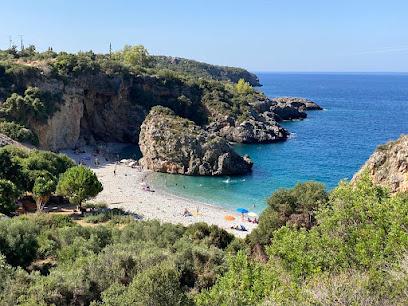
Kalamata's Castle
Explore Kalamata's Castle, a historical treasure with stunning views and rich heritage, perfect for travelers seeking culture and beauty in Greece.
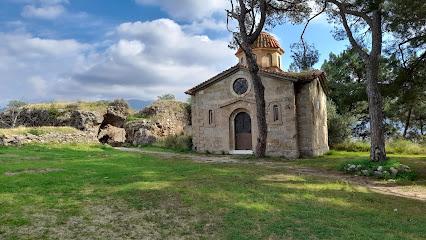
Paralia Kalogrias
Experience the tranquility and beauty of Paralia Kalogrias, a pristine beach in Lefktro, Greece, perfect for relaxation and adventure under the sun.
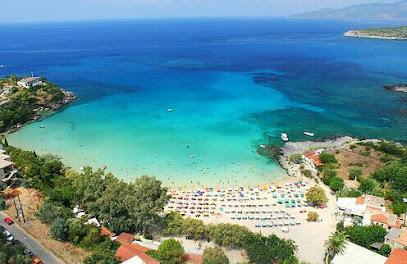
New Castle of Pylos
Discover the rich history and breathtaking views at the New Castle of Pylos, a stunning fortress on Greece's southwestern coast.
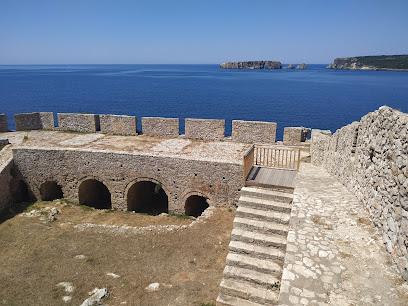
Museum of the Olive and Greek Olive Oil
Explore the rich history and significance of olives and olive oil at the Museum of the Olive and Greek Olive Oil in Sparti, Greece.
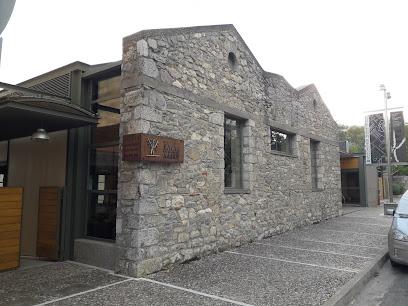
Delfinia beach
Experience the idyllic charm of Delfinia Beach in Greece, where pristine sands meet crystal-clear waters for a perfect day under the sun.
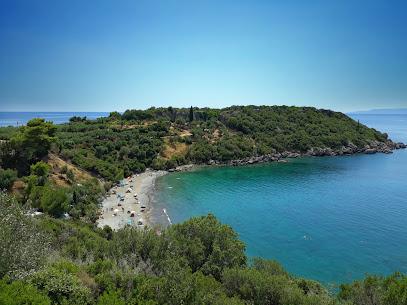
Costa Navarino
Discover the enchanting beauty of Costa Navarino, a premier resort blending luxury with rich cultural experiences in picturesque Pylos-Nestor.
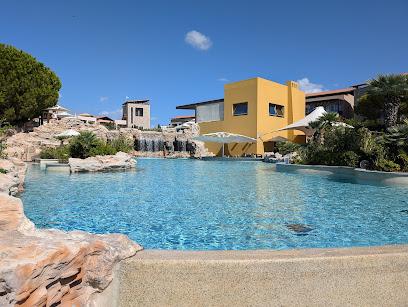
Archaeological Museum of Sparta
Explore the Ancient Wonders of Sparta at the Archaeological Museum – A Journey Through Time Awaits.
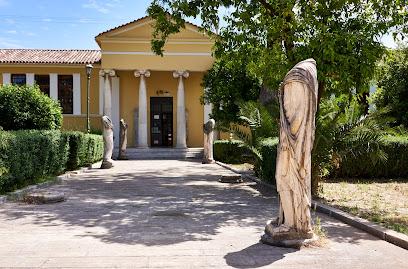
Old Navarino Fortress
Explore the Old Navarino Fortress in Pylos, a historical landmark rich in culture and breathtaking views of Navarino Bay.
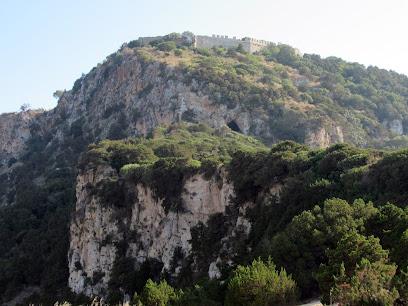
Essential places to dine
Kardamo
Experience authentic Greek cuisine at Kardamo in Kalamata – where tradition meets flavor in every dish.
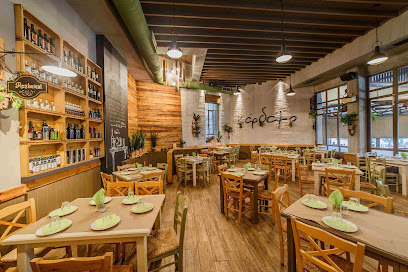
Platea
Experience authentic Greek cuisine at Platea in Kalamata—where tradition meets modern culinary artistry.
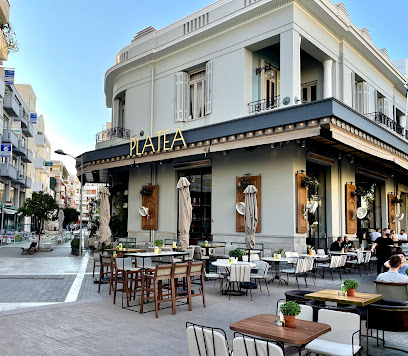
Da Luz Bar &Grill Kalamata
Experience authentic Greek cuisine at Da Luz Bar & Grill in Kalamata – where every meal is a celebration of flavor and culture.
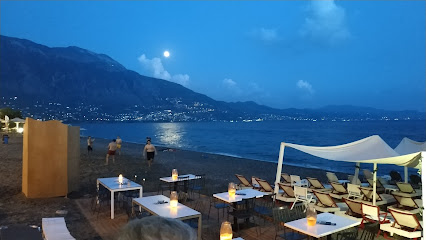
Thiasos
Experience authentic Greek flavors at Thiasos in Kalamata—where every dish is crafted with passion and served with warmth.
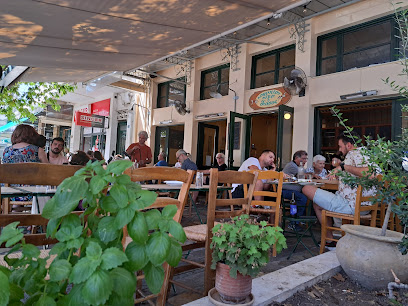
Luna Lounge
Experience delightful Mediterranean cuisine at Luna Lounge in Kalamata—where great food meets vibrant nightlife.
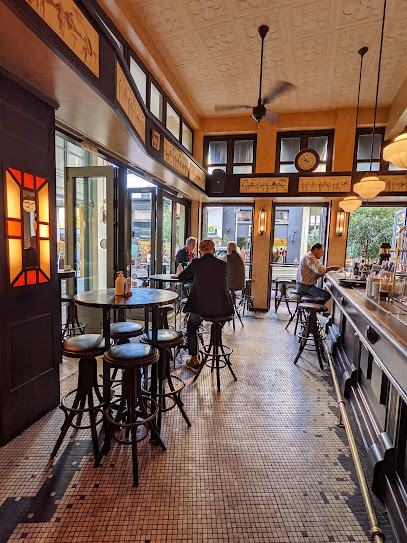
Taverna Argo
Savor the true taste of Greece at Taverna Argo in Kalamata – where tradition meets flavor in every dish.
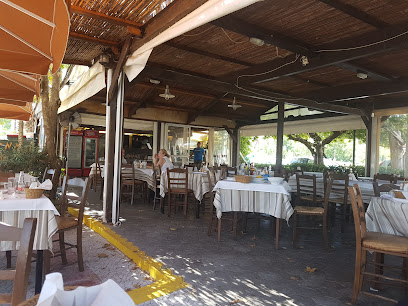
Kentrikon Restaurant - Meze
Discover authentic Greek cuisine at Kentrikon Restaurant - Meze in Kalamata, offering delightful small plates and aromatic coffee in a warm atmosphere.
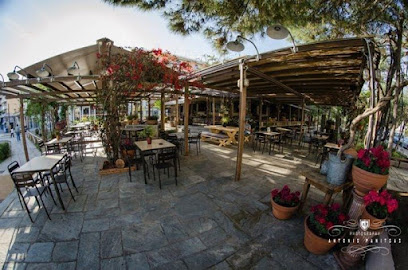
Sto Kyma
Discover authentic Greek cuisine at Sto Kyma in Kalamata – where tradition meets taste in every delightful dish.
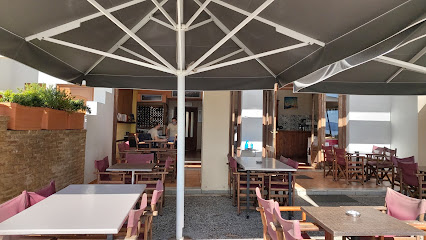
Ta Rolla
Discover authentic Greek flavors at Ta Rolla in Kalamata - where tradition meets taste in every bite.
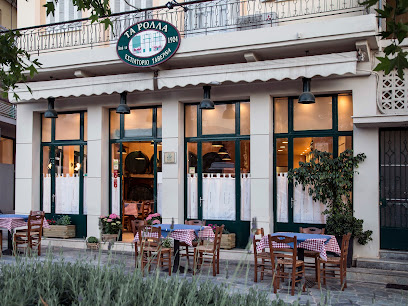
Casa Marina
Discover the flavors of Kalamata at Casa Marina—where Mediterranean cuisine meets stunning marina views in an unforgettable dining experience.
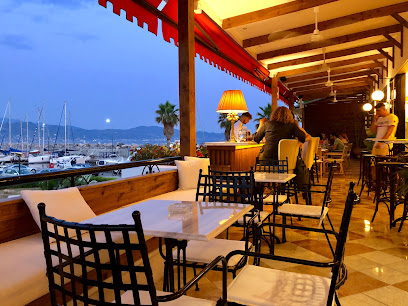
Tartufo 24
Experience authentic Italian cuisine at Tartufo 24 in Kalamata—where every dish is crafted with passion and tradition.
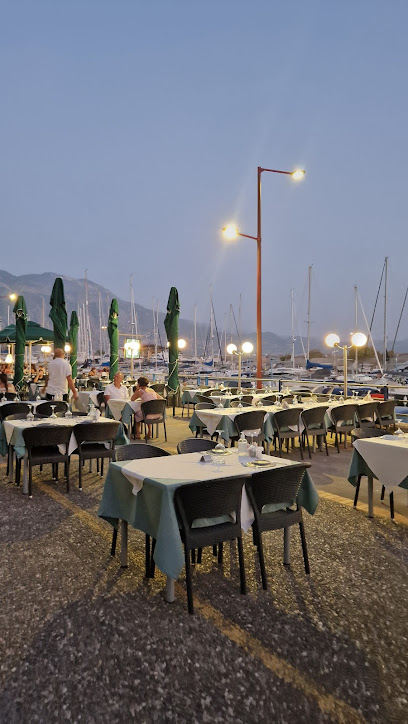
Oinopantopōleion
Experience authentic Greek cuisine at Oinopantopōleion in Kalamata - where tradition meets taste.
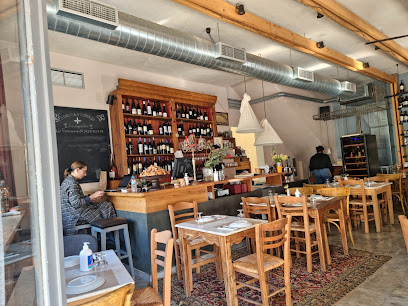
ΤΟ ΛΙΜΕΝΙ
Experience authentic Greek seafood at ΤΟ ΛΙΜΕΝΙ in Kalamata Marina – where fresh flavors meet stunning sea views.
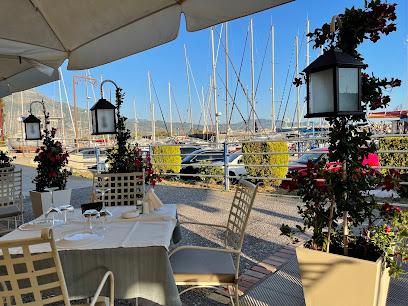
THE CHAGIATI
Experience authentic Greek flavors at The Chagiati in Kalamata, where every dish tells a story of tradition and freshness.
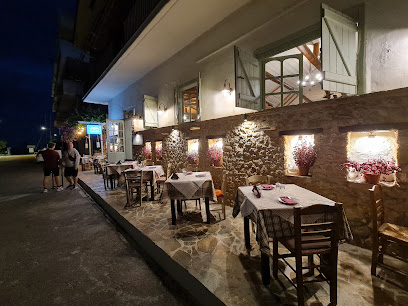
Notiás
Discover Notiás in Kalamata: A haven for Mediterranean cuisine lovers with fresh oysters and exceptional local dishes.
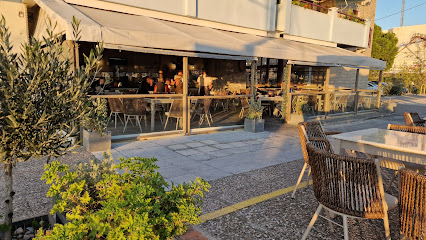
Markets, malls and hidden boutiques
E-SHOP.GR
Explore E-SHOP.GR in Kalamata for a diverse range of electronics, cameras, and tech gear in a welcoming and knowledgeable environment.
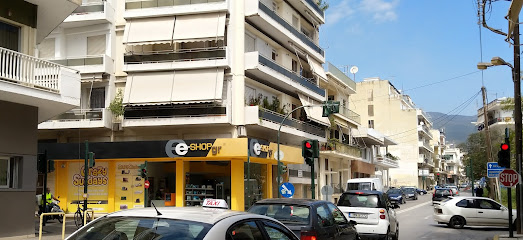
SQUARE Kalamata
Discover contemporary fashion at SQUARE Kalamata, where local culture meets modern style in a vibrant shopping atmosphere.
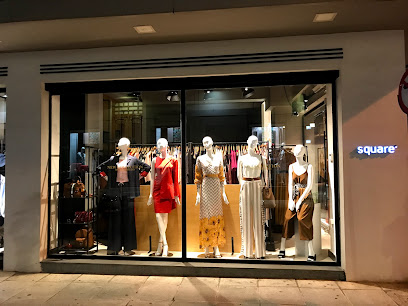
Notos Galleries
Discover the essence of Greek shopping at Notos Galleries in Kalamata, where style meets local culture in a stunning department store.
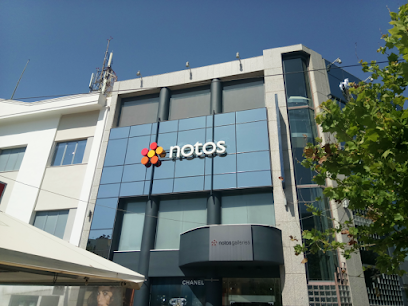
Cosmos Sport
Explore Cosmos Sport in Kalamata for top-quality sporting goods and stylish athletic apparel, perfect for your next adventure in Greece.
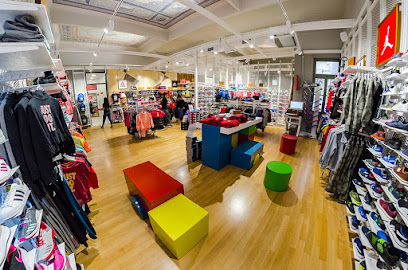
a:mano | Χειροποίητο - Προσωποποιημένο - Εναλλακτικό Κόσμημα | Handmade Jewelry
Explore Amano in Kalamata for handcrafted, personalized jewelry that captures the essence of Greek artistry and craftsmanship.
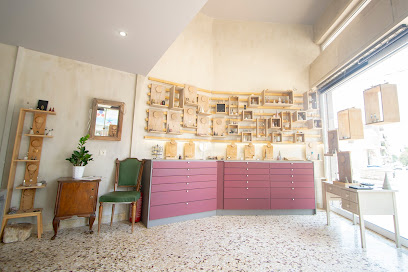
Irini Kutiva Ceramics - Handmade ceramic jewelry and more - Ceramic Studio
Discover the charm of Greek craftsmanship at Irini Kutiva Ceramics, where handmade pottery and jewelry come to life in Kalamata.
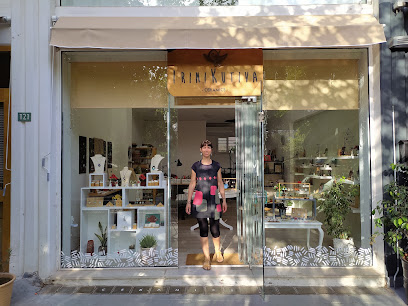
Evmáreia
Explore Evmáreía in Kalamata for unique gifts and handcrafted jewelry—experience the heart of local creativity and culture.
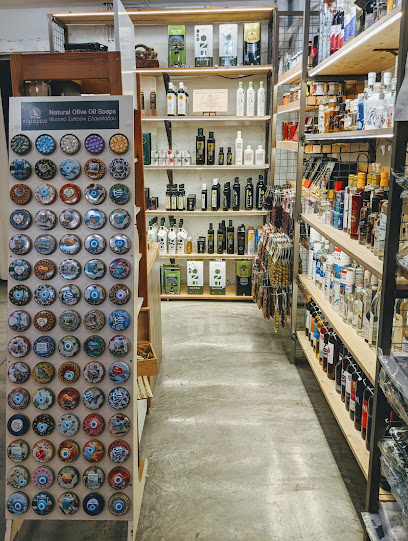
fantazy stores
Explore the best of fashion at Fantazy Stores in Kalamata, where unique bags and dresses await every discerning shopper.
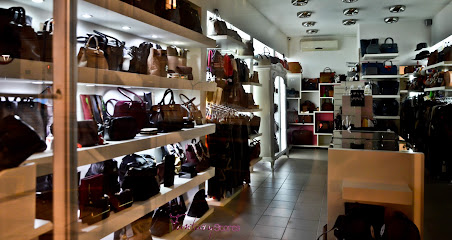
Funky Buddha
Discover unique fashion at Funky Buddha in Kalamata, the ultimate destination for stylish clothing for men, women, and children.
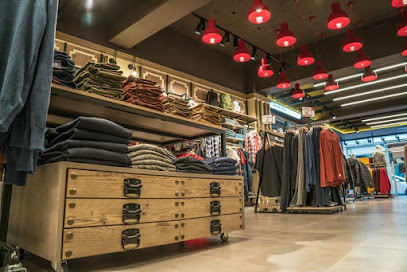
Oysho
Explore stylish women's sportswear at Oysho, Kalamata, where fashion meets fitness in a vibrant shopping experience.
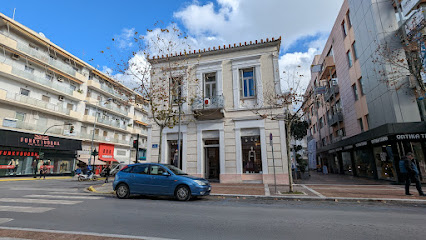
Aurora Kalamata
Explore Aurora Kalamata for trendy fashion that blends modern style with Greek heritage, creating a unique shopping experience in the heart of Kalamata.
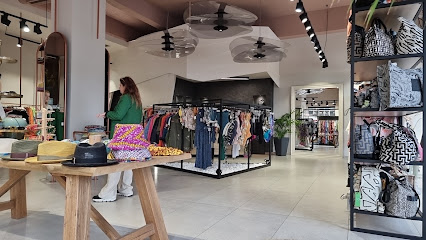
METALLOFASHION.COM
Explore unique styles at Metallofashion Boutique in Kalamata, where quality meets personalized service.
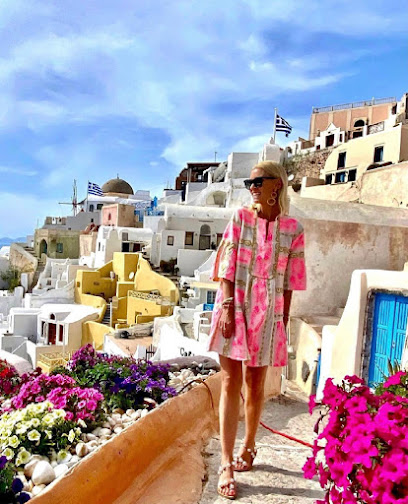
Pink Geek | Χειροποίητα κοσμήματα & δώρα
Explore Pink Geek in Kalamata for unique handcrafted jewelry and gifts that capture the essence of local artistry and creativity.
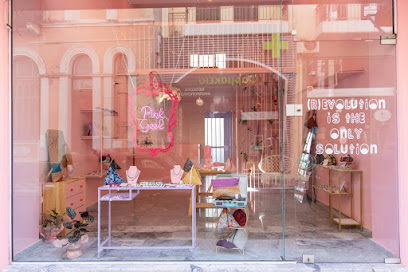
Anna-Maria
Explore unique costumes, clothing, and shoes at Anna-Maria in Kalamata, a must-visit for fashion enthusiasts and tourists alike.
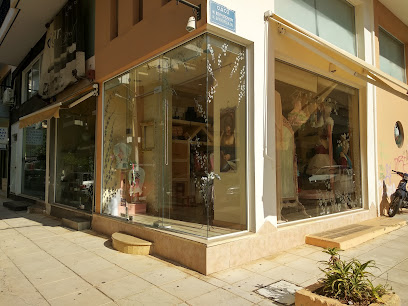
ethno souvenirs
Explore authentic Greek culture at Ethno Souvenirs in Kalamata, offering unique handcrafted items that capture the spirit of Greece.
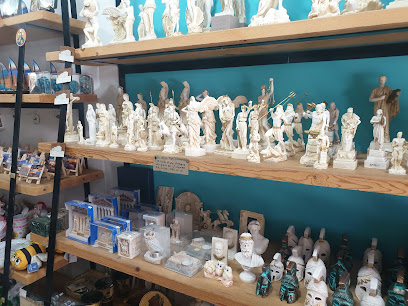
Essential bars & hidden hideouts
Da Luz Bar &Grill Kalamata
Discover the vibrant flavors of Kalamata at Da Luz Bar & Grill, where exceptional grilled dishes and a lively atmosphere await every visitor.
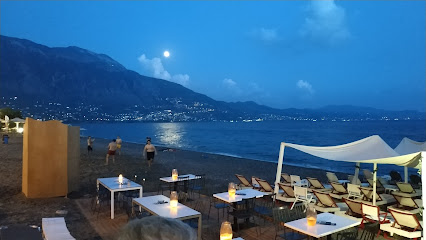
Luna Lounge
Discover Luna Lounge in Kalamata, where delicious food meets vibrant nightlife in a cozy, modern atmosphere.
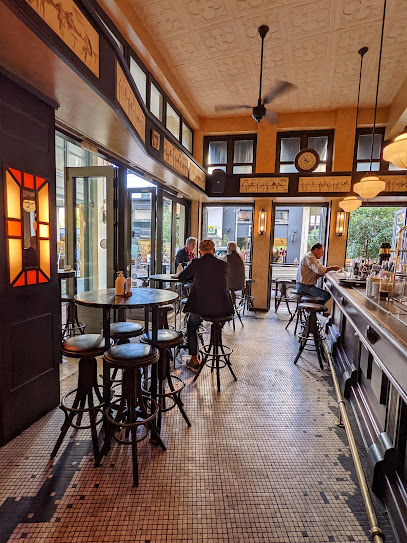
Thalassa(Θάλασσα)
Experience the vibrant coastal charm of Thalassa in Kalamata, where delicious cuisine meets stunning sea views in a relaxed atmosphere.
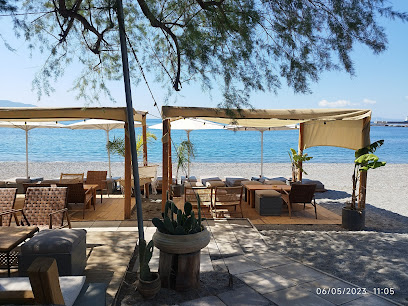
ΚΥΤΤΑΡΟ Rock Bar
Discover the heart of Kalamata's vibrant nightlife at ΚΥΤΤΑΡΟ Rock Bar, where live music and great drinks create unforgettable nights.
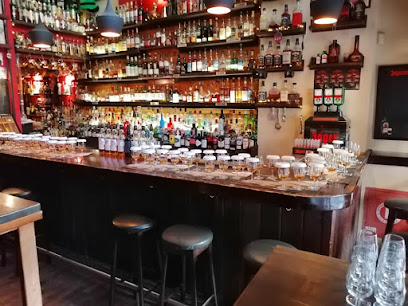
Anasha
Experience the best of Mediterranean and sushi cuisine at Anasha in Kalamata, where stunning seaside views meet exceptional dining.
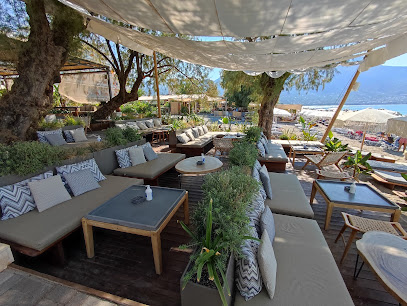
Vino Banco Tapas
Experience the vibrant tastes of Kalamata at Vino Banco Tapas, where Mediterranean flavors and a lively atmosphere come together.
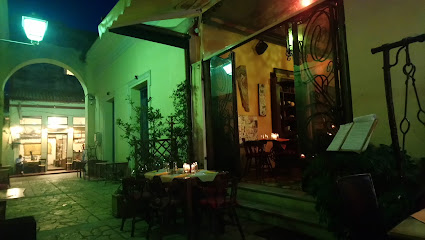
Rodanthos Rock n Roll Beer Bar
Experience the ultimate blend of live rock music, delicious gastropub cuisine, and a vibrant atmosphere at Rodanthos Rock n Roll Beer Bar in Kalamata.
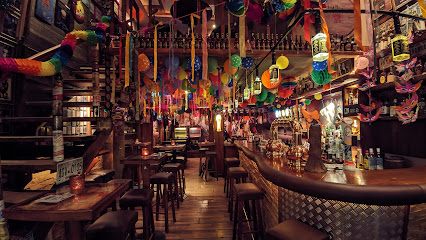
Gazoza
Experience the vibrant nightlife of Kalamata at Gazoza, where small plates meet live music in a cozy bar and grill setting.
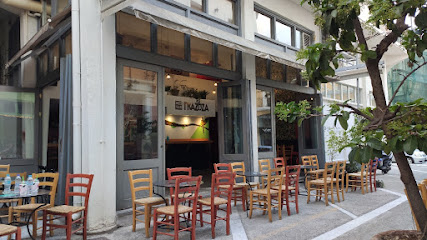
TZITZIKAS | Cafe - Beach Bar
Discover Tzitzikas, a charming café and beach bar in Kalamata, perfect for cocktails, light bites, and breathtaking coastal views.
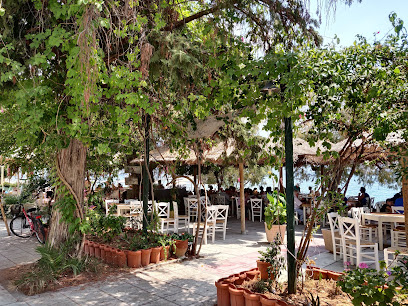
Bitter
Experience the vibrant nightlife of Kalamata at Bitter, where exquisite cocktails and a lively atmosphere await.
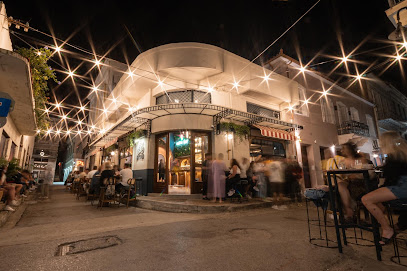
Mon cheri cocktail bar
Experience the vibrant nightlife of Kalamata at Mon Cheri Cocktail Bar, where exquisite cocktails and a lively atmosphere await every visitor.
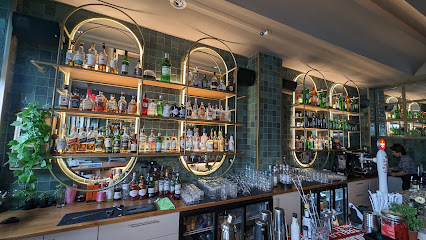
Route 66
Discover the lively spirit of Route 66 in Kalamata, where great drinks and vibrant nightlife create unforgettable moments.
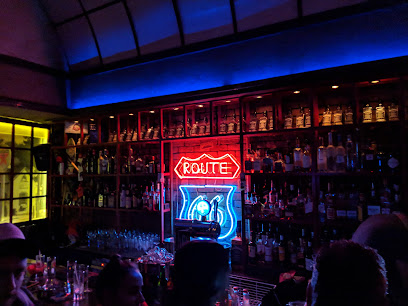
BAD HABIT saint pleasure
Experience the vibrant cocktail culture at Bad Habit Saint Pleasure, Kalamata's top bar for unique drinks and lively nightlife.
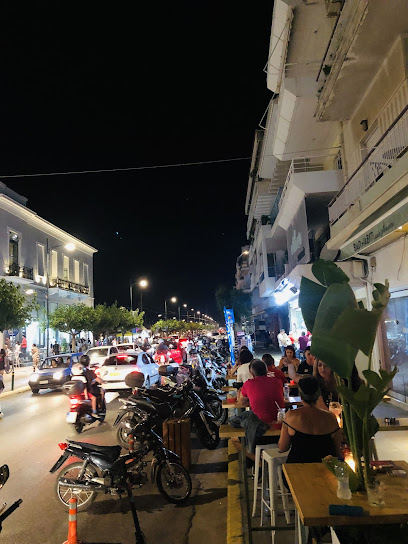
DOC
Discover the exquisite taste of local and international wines at DOC Wine Bar, a cozy haven for wine lovers in Kalamata.
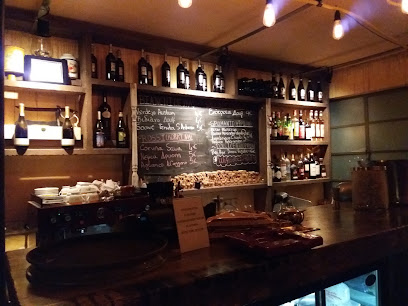
Travel experiences inspired by this city
Explore more travel diariesLocal Phrases
-
- HelloΓεια σας
[Yia sas] - GoodbyeΑντίο
[Adio] - YesΝαι
[Ne] - NoΌχι
[Ohi] - Please/You're welcomeΠαρακαλώ
[Parakalo] - Thank youΕυχαριστώ
[Efharisto] - Excuse me/SorryΣυγγνώμη
[Signomi] - How are you?Πώς είσαι;
[Pos ise;] - Fine. And you?Καλά. Εσύ;
[Kala. Esi;] - Do you speak English?Μιλάτε αγγλικά;
[Milate anglika;] - I don't understandΔεν καταλαβαίνω
[Den katalaveno]
- HelloΓεια σας
-
- I'd like to see the menu, pleaseΘα ήθελα να δω το μενού, παρακαλώ
[Tha ithela na do to menu, parakalo] - I don't eat meatΔεν τρώω κρέας
[Den troo kreas] - Cheers!Υγεία!
[Iyia!] - I would like to pay, pleaseΘα ήθελα να πληρώσω, παρακαλώ
[Tha ithela na plirosó, parakalo]
- I'd like to see the menu, pleaseΘα ήθελα να δω το μενού, παρακαλώ
-
- Help!Βοήθεια!
[Voithia!] - Go away!Πήγαινε μακριά!
[Pigaine makria!] - Call the Police!Καλέστε την αστυνομία!
[Kaleste tin astinomia!] - Call a doctor!Καλέστε ένα γιατρό!
[Kaleste ena giatro!] - I'm lostΈχω χαθεί
[Eho hathi] - I'm illΕίμαι άρρωστος
[Eimai arrostos]
- Help!Βοήθεια!
-
- I'd like to buy...Θα ήθελα να αγοράσω...
[Tha ithela na agoraso...] - I'm just lookingΑπλά κοιτάω
[Apla kitao] - How much is it?Πόσο κοστίζει;
[Poso kostizi;] - That's too expensiveΑυτό είναι πολύ ακριβό
[Afto ine poli akribo] - Can you lower the price?Μπορείτε να μειώσετε την τιμή;
[Borite na miosete tin time;]
- I'd like to buy...Θα ήθελα να αγοράσω...
-
- What time is it?Τι ώρα είναι;
[Ti ora ine;] - It's one o'clockΕίναι μία ώρα
[Ine mia ora] - Half past (10)Μισή (δέκα)
[Misi (deka)] - MorningΠρωί
[Proi] - AfternoonΑπόγευμα
[Apoyevma] - EveningΒράδυ
[Vradi] - YesterdayΧθες
[Hthes] - TodayΣήμερα
[Simera] - TomorrowΑύριο
[Aurio] - 1Ένα
[Ena] - 2Δύο
[Dio] - 3Τρία
[Tria] - 4Τέσσερα
[Tessera] - 5Πέντε
[Pente] - 6Έξι
[Exi] - 7Επτά
[Epta] - 8Οκτώ
[Okto] - 9Εννιά
[Ennia] - 10Δέκα
[Deka]
- What time is it?Τι ώρα είναι;
-
- Where's a/the...?Πού είναι ένας/η...;
[Pou ine enas/i...;] - What's the address?Ποια είναι η διεύθυνση;
[Pia ine i diefthinsi;] - Can you show me (on the map)?Μπορείτε να μου δείξετε (στο χάρτη);
[Borite na mou dixete (sto charti);] - When's the next (bus)?Πότε είναι το επόμενο (λεωφορείο);
[Pote ine to epomeno (leoforeio);] - A ticket (to ....)Ένα εισιτήριο (προς ....)
[Ena isitirio (pros ....)]
- Where's a/the...?Πού είναι ένας/η...;
History of Kalamata
-
Kalamata, located in the Messenia region of the Peloponnese, has a deep-rooted history dating back to ancient times. The area was inhabited as early as the Bronze Age, and by the Mycenaean period, it had developed significant settlements. Archaeological evidence suggests that the Mycenaeans constructed impressive structures and engaged in extensive trade, laying the groundwork for Kalamata’s early development.
-
During the Byzantine era, Kalamata experienced substantial growth and prosperity. The city became an important trade and cultural center, connecting the eastern and western parts of the Byzantine Empire. Notable remnants from this period include the Church of the Holy Apostles, which dates back to the 12th century and stands as a testament to the city's religious and architectural significance during the Byzantine period.
-
In 1205, Kalamata fell under Frankish rule following the Fourth Crusade. The Villehardouin family, who controlled much of the Peloponnese, fortified the city and constructed the imposing Kalamata Castle. This period saw the introduction of feudalism and the establishment of a courtly culture. The castle remains one of the most significant historical landmarks in the city, offering panoramic views of Kalamata and the surrounding region.
-
Kalamata came under Ottoman control in the mid-15th century, marking a new chapter in its history. The city became a hub of administrative and military activity, with the Ottomans building mosques, baths, and other infrastructure. Despite the challenges of foreign rule, Kalamata maintained its cultural identity, with local traditions and customs continuing to thrive.
-
Kalamata played a pivotal role in the Greek War of Independence against Ottoman rule. On March 23, 1821, the city became one of the first to be liberated by Greek revolutionary forces. This event is commemorated annually with celebrations and parades, highlighting Kalamata's critical contribution to the fight for Greek independence.
-
In the modern era, Kalamata has emerged as a vibrant city blending historical legacy with contemporary culture. The city was heavily damaged in the 1986 earthquake but underwent significant reconstruction, preserving its historic character while modernizing its infrastructure. Today, Kalamata is known for its lively festivals, culinary delights, particularly its famous olives, and a growing cultural scene that attracts visitors from around the world.
Kalamata Essentials
-
Kalamata is located in the southern part of the Peloponnese peninsula in Greece. The nearest international airport is Kalamata International Airport (KLX), which offers direct flights from several European cities, especially during the summer season. Alternatively, you can fly into Athens International Airport (ATH) and then take a bus or drive to Kalamata. The journey from Athens to Kalamata takes approximately 2.5 to 3 hours by car via the A7 motorway, or around 4 hours by long-distance KTEL bus.
-
Kalamata offers a variety of transportation options. The city has a reliable and affordable public bus system that covers most areas. Taxis are also readily available and can be hailed on the street or booked via phone. For those looking to explore the surrounding regions, renting a car is a convenient option. Additionally, Kalamata is a bike-friendly city with several rental shops offering bicycles for daily use.
-
The official currency in Greece is the Euro (EUR). Credit and debit cards are widely accepted in Kalamata, including in hotels, restaurants, and shops. ATMs are plentiful throughout the city, and most international cards are accepted for cash withdrawals. It is advisable to carry some cash, especially when visiting smaller establishments or markets.
-
Kalamata is generally a safe city for tourists. However, as with any travel destination, it is important to take standard precautions. Avoid carrying large sums of money or wearing expensive jewelry. Be cautious in crowded areas to prevent pickpocketing. The city does not have specific high-crime areas targeting tourists, but it is always wise to stay vigilant and aware of your surroundings, especially at night.
-
In case of an emergency, dial 112 for immediate assistance. Kalamata has a well-equipped hospital, General Hospital of Kalamata, for medical emergencies. Pharmacies are widely available for minor health issues and over-the-counter medications. It is recommended to have travel insurance that covers medical emergencies. For police assistance, dial 100.
-
Fashion: Do dress modestly when visiting religious sites. Avoid overly revealing clothing. Religion: Do respect local customs and traditions. When entering churches, cover your shoulders and knees. Public Transport: Do be respectful; offer your seat to elderly passengers. Don't eat or drink on public transport. Greetings: Do greet people with a friendly 'Kalimera' (Good morning) or 'Kalispera' (Good evening). A handshake is common. Eating & Drinking: Do try local delicacies and accept food and drink offerings graciously. Don't refuse hospitality, as it is considered impolite.
-
To experience Kalamata like a local, visit the central market (Agora) where you can buy fresh produce and local goods. Engage with locals who are often friendly and eager to share stories about the area. Don't miss the opportunity to explore the historic old town and the Kalamata Castle for stunning views. For a unique local experience, attend one of the many cultural festivals that take place throughout the year, such as the Kalamata International Dance Festival.
Trending Landmark in Kalamata
-
Central Square of Kalamata
-
Municipal Railway Park of Kalamata
-
Kalamata Municipal Railway Park
-
Kalamata's Castle
-
Archaeological Museum of Messinia
-
Kalamata Military Museum
-
Μέγαρο Χορού Καλαμάτας , Kalamata International Dance Centre
-
Historical and Folklore Museum of Kalamata
-
Verga wall
-
Kalamata Port
-
Great Escape Kalamata
-
Memorial of the Battle of Kalamata April 28, 1941
-
Πλατεία Αγίων Αποστόλων
-
东正教堂 卡拉玛塔市
-
Pl. Agiou Georgiou
Nearby Cities to Kalamata
-
Things To Do in Olympia
-
Things To Do in Nafplio
-
Things To Do in Zakynthos
-
Things To Do in Patras
-
Things To Do in Delphi
-
Things To Do in Athens
-
Things To Do in Lamia
-
Things To Do in Chania
-
Things To Do in Volos
-
Things To Do in Rethymno
-
Things To Do in Larissa
-
Things To Do in Mykonos
-
Things To Do in Meteora
-
Things To Do in Pyrgos
-
Things To Do in Santorini













